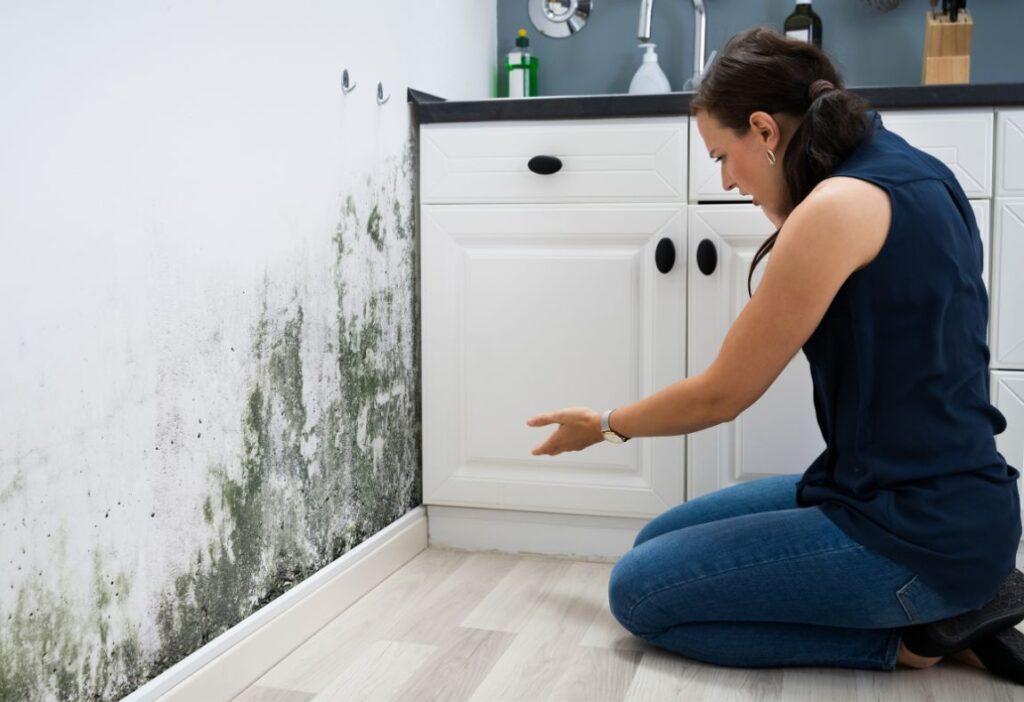Don’t Let Rainy Season Turn In Mold Season

Rainy season is here in California!
While we wait for sunnier days, it’s important to remember that excessive rain can cause a lot of problems. Mold can grow in just about any damp environment, and can cause a variety of health problems including allergic reactions, respiratory issues, and even neurological problems. It can also cause structural damage to homes and buildings, making it a serious concern for homeowners.
HOW TO GET RID OF MOLD AFTER HEAVY RAIN
In our current weather conditions, mold thrives. If left alone, mold growth can affect your home, belongings and your health. Thankfully, there are some easy ways to try and prevent mold or to get rid of mold as soon as it appears. Please note: Mold presents a serious risk to your and your family’s health. If you are dealing with a severe mold growth situation right now, please call a professional mold remediation company to remove the mold and restore your home to a safe environment.
There are many ways water can get into your home or business and cause issues. Be on the lookout for any of the following:
- Leaks and water damage: Heavy rain and storms can cause leaks in roofs, windows, and walls, leading to water damage and dampness in the home. This excess moisture can provide the perfect breeding ground for mold growth.
- Humidity: Rain and humidity go hand in hand. High humidity levels can create an ideal environment for mold growth. Moisture can accumulate in the air, on walls, and in furniture, leading to mold growth over time.
- Poor ventilation: During the rainy season, we tend to keep our windows and doors closed to keep the rain out. This can create poor ventilation in our homes, which can lead to excess moisture buildup and mold growth.
- Flooding: Heavy rain can also cause flooding in basements and other areas of the home, which can lead to standing water and excessive moisture. This can quickly turn into a mold problem if not addressed promptly.
It’s important to remember that mold growth can happen quickly and can be difficult to detect without professional testing. There are , however, some simple steps you can take to reduce the risk of mold growth in your home during the rainy season:
- Keep your home dry – Use dehumidifiers and fans to keep the air circulating and reduce moisture levels in your home.
- Fix leaks and water damage – If you notice any leaks or water damage in your home, address them promptly to prevent the growth of mold.
- Ventilate your home – Use exhaust fans in bathrooms and kitchens to reduce moisture levels and promote ventilation.
- Keep gutters clean – Ensure that gutters and downspouts are clean and free from debris to prevent water from pooling around your home’s foundation.
- Invest in professional mold testing – Professional mold testing is the best way to ensure that your home is free from mold growth. Certified mold inspectors can identify potential problem areas and provide recommendations for remediation and prevention.
What Creates Mold?
Mold is a direct consequence of too much dampness in any environment.
In our homes, mold is created when there is too much wetness or moisture in the air.
So naturally, excessive water and flooding, when cleared can lead to mold growth as the surfaces affected by the water can remain damp for days.Mold can also occur without water or flooding if the damp and humid air remains above a level of humidity for an extended period of time, without proper ventilation. This is why roofs, ceilings, attics are prone to mold growth. Typically, if humidity is above 70% for an extended period without ventilation, you can see a mold growth.If humidity remains at 85% that is when you can see moisture absorbing into materials and surfaces and creating widespread mold spores.
How Does Mold Affect My Health?
The most common sign that mold is affecting your health or your family’s health is respiratory problems. Upper respiratory infections, asthma, coughing, sinus infections are all common results of a mould issue at your home. Some people can see wheezy coughs, headaches and irritated eyes. On the severe end of the spectrum, a person can see lethargy, grogginess and tiredness. If you feel you or your family are being affected by mold in your home, please contact Mold Fix to get a professional opinion.


